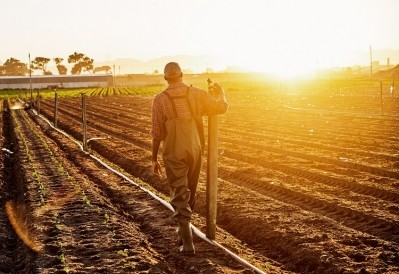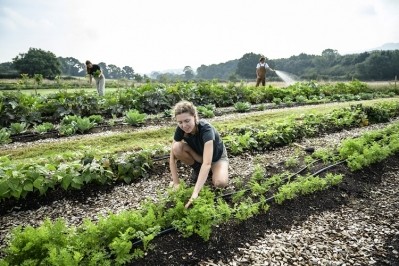‘They are the centre of everything’: The changing skills of farmers in regenerative agriculture

At our Climate Smart Food Summit last month, we spoke to several key players in regenerative agriculture about the importance of the skills of farmers, and how these skillsets will grow and develop in a changing world.
Understanding change
Farmers are already skilled workers, and have been so for thousands of years. However, introducing farmers to new practices through regenerative agriculture programmes presents new challenges for them, forcing them to adapt to new kinds of farming.
Farmers “bear a lot of risk in regenerative ag,” said Eric Heismeyer, VP and Chief Customer Officer for food solutions at Bunge, “so as we go through regenerative ag practices across the globe in different regions, our farmers are being asked to do more different types of practices. So truly understanding the risks is one of the challenges we put into play every single day at Bunge, understanding our customers and helping them solve problems.
“Farmers are some of the most sustainable people you're ever going to meet in the world. Farming has been going on for a very long time. They always want to be sustainable, so as the market brings more practices to them, their operations will pass along to their family and the world will continue to get food from them.”
Heismeyer stressed that the skills needed by farmers are changing and will continue to change. “Farmers have always been skilled. I think that the difference is they're going to have different skills.
“So I think digital will have a big impact on this; so digital skills will be different then they were the last 10 or 15 or 20 years in farming. Farmers are super talented people, but the skills they’re going to have to learn in the next 5, 10, 15 years will be different.”
Marie Ellul-Karamanian, Program Lead for Mondelēz International’s Harmony Program, its own sustainable agriculture program, agreed. “I think it's a profession that is very skilled, that will become more and more skilled in the future,” she said. “I mean without farmers there's nothing that can be done. They are the centre of everything. So we need to protect and support them along the way in order to get there because it's our end objective.
“I think training is critical because I believe regenerative agriculture is a complex topic, it has many different dimensions. We need to train them, to bring knowledge, but also to bring trust and to bring a willingness to move towards the same objective.”
She also saw the importance of digital tools to farming. “Today, we are still doing a lot manually, it’s still taking a lot of time for farmers to report on everything they do in order to try trace their wheat, in order to trace all the wheat practices that they deploy. Here I believe Mondelēz and food companies in general have a role to play to support farmers in bringing the right tools: in bringing tools that are personalised, adapted to them, in order to help them monitor their environmental impact, but also to help them inform their decision-making on the farm.”
Remembering farmer perspectives
According to Theodora Ewer, Program Manager for regenerative agriculture scaling programme Regen10 at the Food and Land Coalition (FOLU), the farmer experience is overlooked. Regen10 aims to put the farmer experience in a more prominent position.
“What what we've seen and heard a lot from the farmer perspective is that there have been a lot of conversations around what regenerative agriculture is that isn't integrating their experiences,” she said, “and that leads to sort of mistrust within the system.
“Then the reporting elements come out and they're reports that are developed for corporates by corporates, which then again leads to these unbalanced power dynamics. So really, building in the farmer experience and the farmer perspective, which can allow us to build out how we can achieve more regenerative practices, and these regenerative outcomes is really key.”
Science and farming
Ewer also believes that it is important not to separate farmers and scientists too stringently, as farmer knowledge is deeply important to the success of regenerative agriculture.
“I think science and farming have often been seen as separate things, but we should see the farmers as the scientists in this sense. A lot of them have so much experience and connection to the land and understand the dynamics, and understand what practices will lead to more regenerative outcomes.
“We just really need to make sure more respect is given to the knowledge and expertise that comes from farming, instead of sort of imposing top-down requirements for what others might see as regenerative.”
Dr. Vincent Walsh, Founder and Head of Innovation at RegenFarmCo, which focuses on scaling up regenerative agriculture initiatives, is both a farmer and a scientist. Both roles enable him to understand the land.
“I'm a farmer,” he said, “I have 130 sheep, I've got 37 hectares of land and we integrate them with apples, pears, quinces, honeyberries, elderberries. And all we try to do is stack as much complexity in the system because we know that that's where the feedback is, that's where we get the rich soils from.”
It is in his role both as a farmer and a scientist, Walsh believes that complexity is vital for regenerative agriculture, that mimicking the complexity of nature is the best way to help the land.
























